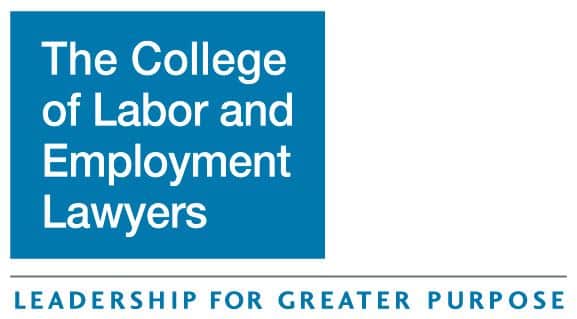Experienced & Responsive Legal Services for Whistleblowers
If a private citizen in Missouri has information about a company defrauding a government entity, they can file a lawsuit against the offender. This type of legal action is known as a “qui tam” lawsuit under the False Claims Act (FCA). A whistleblower (or relator) can recover between 15 percent and 30 percent of the overall award or settlement from the lawsuit.
Some common instances of illegal practices that often result in qui tam lawsuits include fraudulent claims filed by medical providers, kickbacks paid to government contractors, or other contractual violations that violate federal government statutes.
However, qui tam lawsuits can be overly complex and challenging to win without the help of a qualified attorney. Riggan Law Firm, LLC has comprehensive experience helping private citizens who need assistance with False Claims Act cases.
If you are a potential qui tam whistleblower who is unsure whether a situation qualifies for the False Claims Act or need help to report fraud, contact Riggan Law Firm, LLC at our Kirkwood, MO law firm to schedule a meeting with a qualified attorney who will gladly evaluate your case.
What Is a Qui Tam Lawyer?
A qui tam lawyer bases their practice on an ancient process in general law that permits a relator to execute a lawsuit for the government and receive a reward. If their lawsuit is successful, the relator can receive a whistleblower award.
Our Missouri-based lawyers are dedicated to helping whistleblowers obtain the most favorable outcome when initiating qui tam actions. Our legal team understands the complexities of qui tam claims and has the trial-tested experience to protect your rights and best interests throughout the legal process.
Our law firm for whistleblowers handles the following types of qui tam cases:
- Healthcare fraud: Medicare and Medicaid Fraud committed by hospitals, doctors, and other healthcare providers, including Medicare or Medicaid billing of unnecessary procedures, or illegal drug marketing practices by pharmaceutical companies
- Bank and mortgage fraud: Bankers submit fraudulent claims based on wrongful foreclosures for government insurance
- Education fraud: For-profit higher institutions that violate student loan rules to recruit students to gain income improperly
- Other types of government fraud: From national defense fraud to underpayments to the government
Do not hesitate to contact our Missouri qui tam attorneys today and request a consultation with one of our qui tam attorneys, who will professionally evaluate your case.
What is the False Claims Act?
President Abraham Lincoln enacted the FCA to protect the government and the Union Army from fraudulent practices by some suppliers. It is now used as a powerful tool to fight and expose fraud against the government. As a result, the False Claims Act has been used to successfully prosecute many cases and recover hundreds of millions of dollars from taxpayers.
Qui tam is a shorthand for a Latin phrase that means “[he] who sues on behalf of the king as well as for himself.” Such provisions existed during the Middle Ages in England and ultimately resulted in the enactment of the False Claims Act in the United States.
The following are the most common types of government-related fraud:
- Overbilling the government
- Committing fraud to secure a government contract
- False statements made on contracts and forms
- Failing to follow government contracts
- Failing to pay owed money to the government
- Conspiring with another person or party to commit fraud against the government
Understanding the scope of the False Claims Act can be challenging due to the legal complexities of federal and state law. Therefore, private citizens who believe fraud is being perpetrated against the United States government must hire a highly qualified attorney to assist them with a qui tam case. It is best to seek legal counsel from a knowledgeable attorney with experience dealing with qui tam laws.
Who May File a Qui Tam Lawsuit?
Under the False Claims Act, private citizens with information regarding fraudulent claims may bring a qui tam lawsuit. Often, individuals who instigate qui tam lawsuits are current or former employees in management or higher-level positions. However, government contractors, competitors, or others with first-hand knowledge about fraud may also bring qui tam actions.
Aside from employees and contractors closely associated with a company, many other private citizens routinely report government fraud, including:
- Healthcare professionals
- Patients who have been the victim of healthcare fraud
- Competitors
- Public interest groups
Even though any private citizen may act as a whistleblower to expose fraud, they must do so with the help of a qui tam lawyer. It should also be understood that if another relator has already filed a qui tam lawsuit regarding the same fraudulent activity, the second qui tam whistleblower is ineligible to also file a civil lawsuit.
Although any individual may file a qui tam lawsuit, anyone who brings legal action must have sufficient evidence in the form of documentation regarding the fraudulent activity.
Riggan Law Firm, LLC has a dedicated legal team with significant experience handling qui tam law cases. Contact our law firm today to schedule a meeting so that we may assess your case.
How Do I File a Qui Tam Action?
If you are considering the option to file a qui tam action, federal and state False Claims Act laws require you to have a qualified attorney who will represent you. Although individuals may choose to file False Claims Act (FCT) cases without much evidence, it is always best to have sufficient documentation to support your claim. The more evidence you can present proving that fraudulent activity has occurred, the higher the chances that the government will intervene in the case.
For example, a qui tam lawsuit will likely not move forward if the primary source of evidence is information that can be obtained publicly. Instead, information must be from an “original source,” meaning someone, such as the qui tam whistleblower, provided the evidence before it became public knowledge.
Once clear evidence has been established, a qualified attorney can lodge a legal complaint that explains what laws were violated and includes supporting documentation. Next, the qui tam lawsuit must be filed in court under “seal,” meaning it is not open to public review. Filing the legal complaint under seal allows the federal government adequate time to determine if they wish to become involved in the case.
If the state or federal government decides to pursue the case, it will be unsealed, and the details may be released. It should also be noted that if a whistleblower does not follow all legal procedures correctly, such as keeping all details confidential until the case is unsealed, they may lose their ability to claim a reward.
However, if the government decides there are insufficient grounds, such as lack of evidence to pursue legal action, you may still file a civil lawsuit independently. However, if you fail to gather evidence correctly or make what are considered to be unsubstantiated claims, you could face legal action. For these reasons, you need an attorney who will help you navigate the complex legal process and protect your rights.
How Much Money Can a Whistleblower Receive From a Qui Tam Lawsuit?
One of the ways the federal government encourages private citizens, also called relators, to report fraud is through financial incentives provided for in the False Claims Act. These financial incentives allow individuals to receive between 15 and 25% of the amount the government recovers if it intervenes against defendants in civil penalties and restitution. However, if the government decides not to join a case, relators who continue with qui tam lawsuits may receive as much as 25 to 30% of recovered damages. However, statistics show that most whistleblowers collect an average of 16% of the judgment for their assistance with the case.
Even though there is no monetary cap on how much relators may receive in qui tam cases, the final amount granted is based on the value of the information provided. Some of the criteria used to determine the final percentage that may be obtained include:
- The significance of the information provided to the government and its impact on the case
- How the relator came to learn of the fraud and whether they were involved in illegal activities
- Whether the relator attempted to stop the fraud or report it to the proper authorities
- Whether the fraudulent activity was reported promptly to the government
- If the legal complaint initiated by the relator exposed a nationwide pattern of corruption
- If a relator suffered an adverse impact on their life due to reporting the fraud
Finally, after the case has been resolved, the final amount a whistleblower recovers is usually resolved through negotiations between their lawyers and the Department of Justice (DOJ). The court will have the final say if the two parties cannot agree.
What Does the False Claims Act Not Cover?
Even though the False Claims Act exists to help prevent fraud in state and federal government, there are several issues the FCA does not cover. If you are considering filing an FCA, it is important to understand its limitations, which include:
- The False Claims Act does not cover tax fraud. The Internal Revenue Service (IRS) is a government agency with an independent program in which whistleblowers may report tax fraud exceeding two million dollars.
- The federal government is not legally obligated to intervene in qui tam lawsuits. However, a whistleblower does have the option to pursue the case independently.
- The False Claims Act does not guarantee that the whistleblower will receive a reward. If the relator does not win their qui tam case in court, they are rendered ineligible to receive compensation for reporting the alleged fraud.
The False Claims Act does not allow more than one person to file a qui tam lawsuit for the same fraudulent activities. Known as the “first to file” rule, this condition exists in the FCA to encourage fraud to be reported as quickly as possible.
What are the Advantages of Hiring an Experienced Qui Tam Attorney to Help Me With My Case?
One of the stipulations outlined in the False Claims Act is that whistleblowers must have attorneys file qui tam lawsuits on their behalf. However, anyone who wishes to file a qui tam lawsuit should always seek qualified legal counsel.
The process involved with filing a qui tam lawsuit requires significant legal experience to ensure it complies with state and federal laws. If a qui tam complaint is filed in the wrong court, missing information, or filled out incorrectly, it could jeopardize your status to qualify as a False Claims Act whistleblower.
Some of the most significant advantages of hiring an experienced qui tam attorney include:
- Extensive overall knowledge of the False Claims Act
- A clear understanding of what constitutes fraud under the False Claims Act
- Professional ability to determine if a whistleblower has sufficient cause to bring a qui tam lawsuit
- Inform clients regarding the filing process involved in bringing a qui tam case, deadlines, and confidentiality rules
- Provide essential information to clients regarding whistleblower protections, such as how to deal with possible employer retaliation and other risks associated with reporting fraud
- Act as a legal liaison between their client and state and government attorneys
- Determine if the client may be entitled to file other legal action outside of the False Claims Act
If you are still trying to determine the advantages of hiring an experienced qui tam attorney to help you with your case, contact our Kirkwood, MO, law firm immediately to schedule a consultation to learn more about our qualifications and how we can help.
Why Should I Trust Riggan Law Firm, LLC to Help Me With a Qui Tam Case?
One of the most challenging issues you may ever face is deciding to act as a whistleblower and file a qui tam case. Learning that a trusted institution or healthcare provider has been involved in fraudulent activities can be upsetting, especially if you are or have been in their employ.
Riggan Law Firm, LLC is ready to offer the legal help you need immediately and will gladly review your case with you. Our Missouri qui tam attorneys can guide you through all the steps of the legal process and protect you from retaliation. We will go to great lengths to get you the justice and monetary relief you deserve.
If we agree to take your case, you can feel secure knowing that we will work to ensure that you receive the legal counsel you need to feel informed every step of the way. Our highly trained legal professionals are dedicated to ensuring that we never leave our clients in the dark but instead keep you informed of any updates or changes in the case.
Some of the most essential steps that we take to protect our clients include:
- Advising clients of their legal rights under state and federal whistleblower protection laws
- Minimizing the risk of employer retaliation by protecting your identity
- How to accurately document any employer retaliation if it does occur
- Filing additional claims for back pay or compensatory damages if your employer retaliates and terminates your employment
Riggan Law Firm is passionately committed to ensuring that clients who choose to expose fraud and file qui tam claims receive the legal guidance they need to feel safe and confident as we help them through the complex legal process.
If you have information about a company defrauding a government entity, contact Riggan Law Firm, LLC at our Kirkwood, MO, office by calling 314-528-9661 and ask to schedule a meeting with an experienced qui tam attorney.













